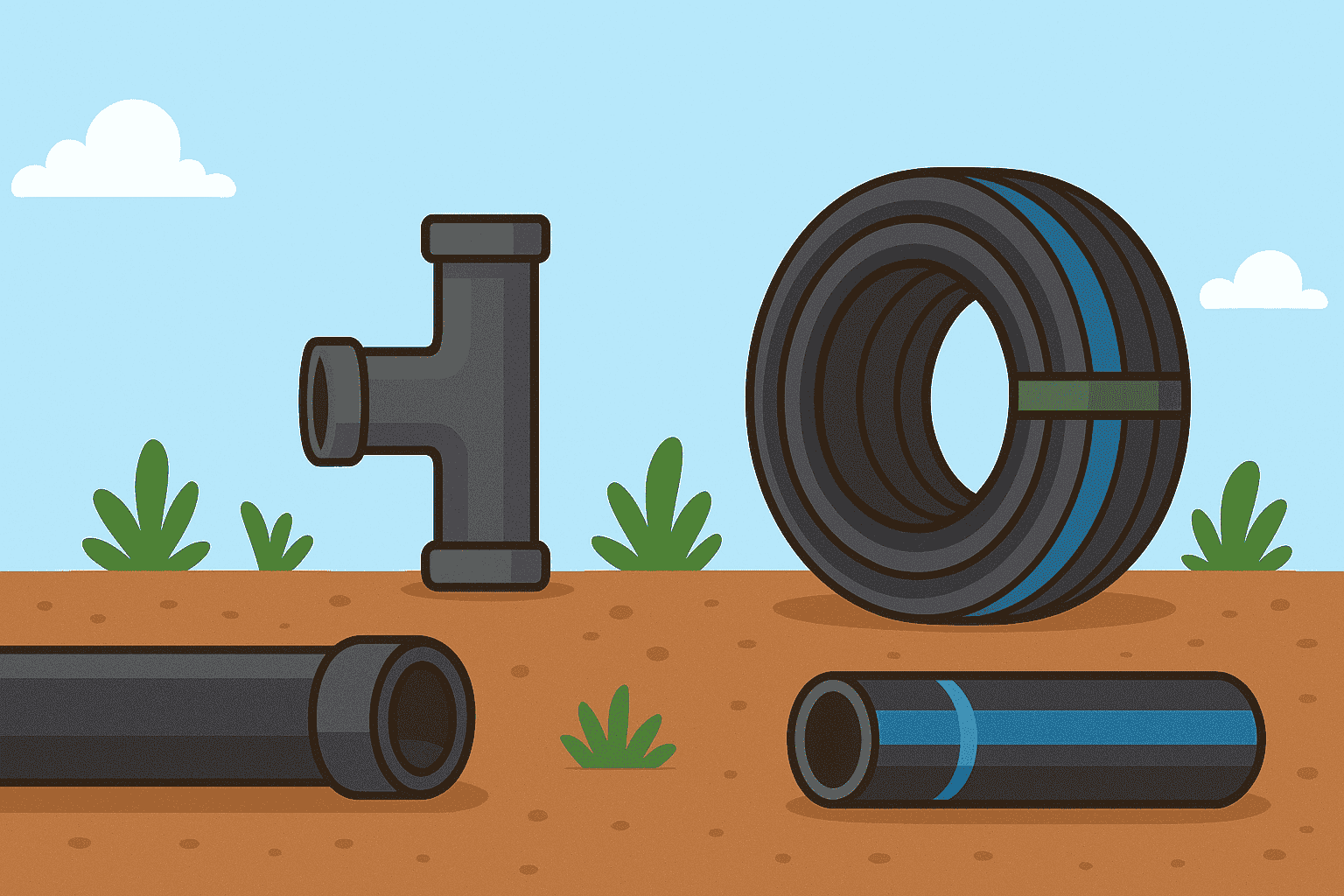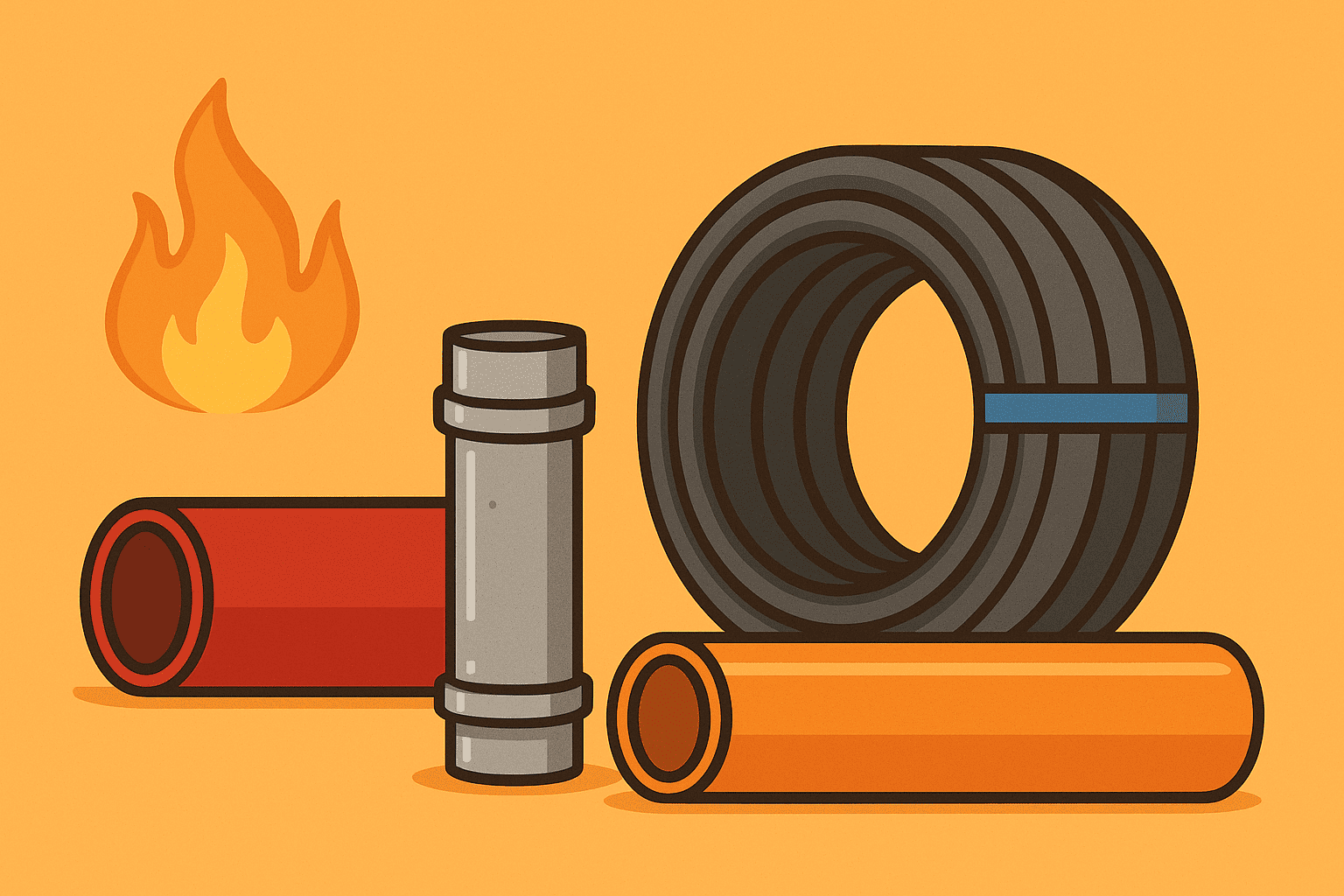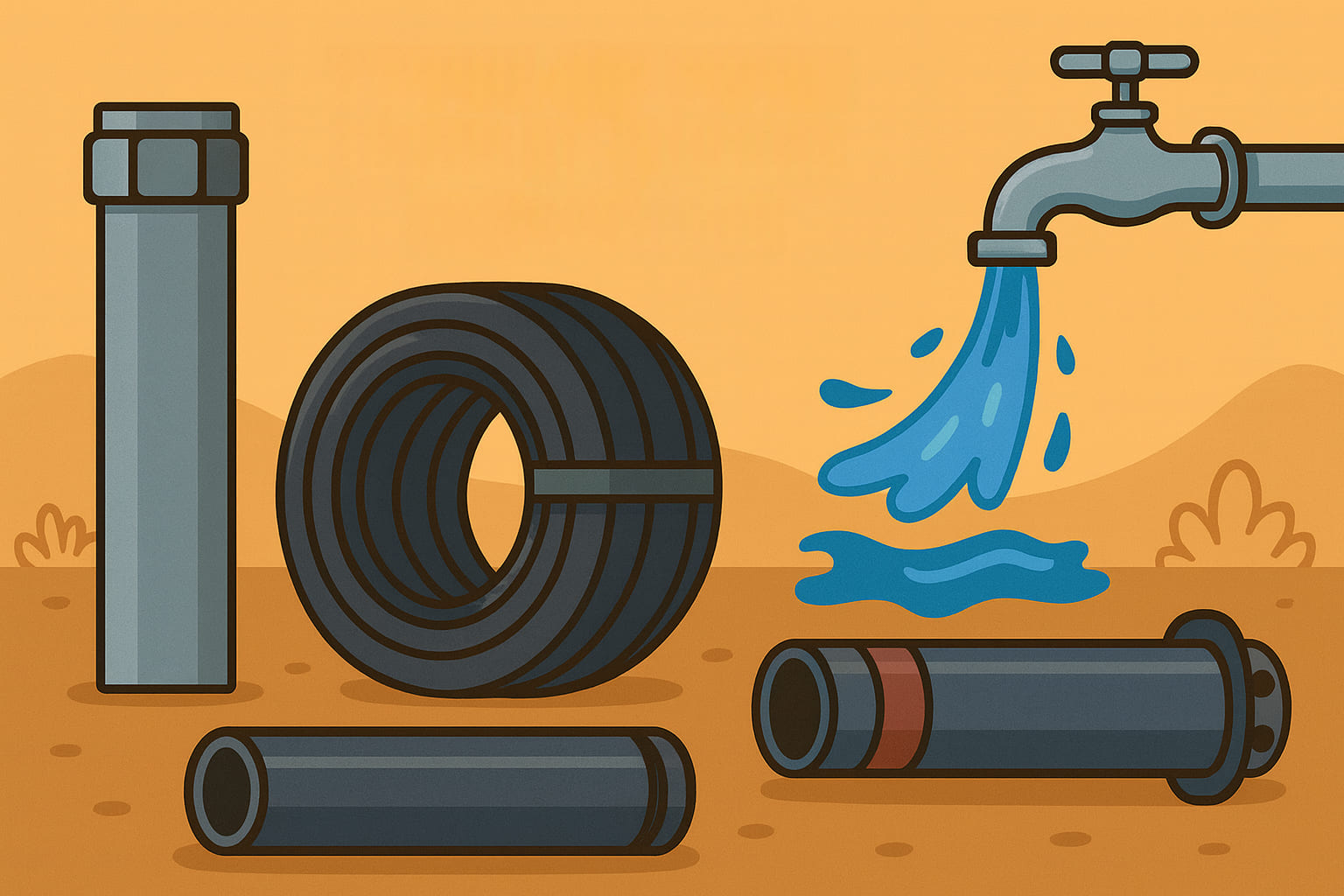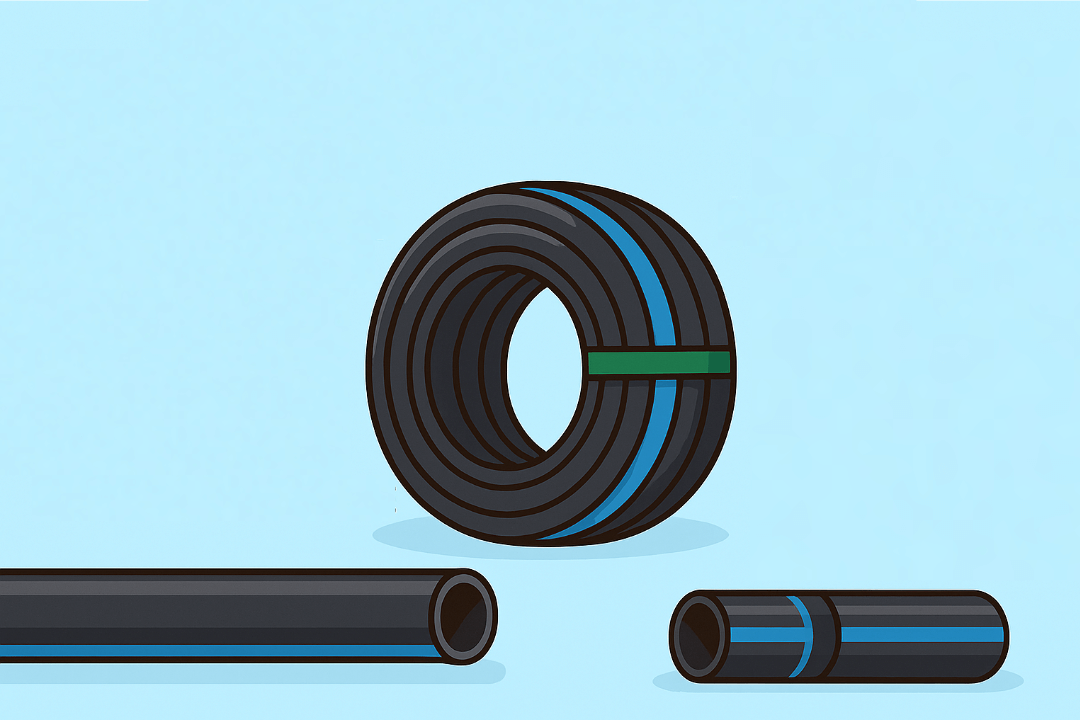How to Choose the Right Pipes for Water Supply and Sewer Networks

Water and sewer networks are among the most important infrastructure systems for any urban or rural community. They ensure the delivery of clean and safe water while disposing of wastewater in a hygienic way that protects the environment and reduces health risks. To achieve these goals, it is essential to select high-quality pipes that suit the nature of the project.
In this article, we explore in detail the types of pipes, the main factors that affect selection, common mistakes to avoid, and practical advice before implementation.
Types Of Pipes Used for Water Supply and Sewer Networks
There are several types of pipes used in water supply and sewer networks, each with its own advantages and disadvantages:
PVC Pipes:
- Lightweight and easy to install.
- Lower cost compared to other types.
- Suitable for small networks but cannot withstand high pressure for long periods.
High-Density Polyethylene (HDPE) Pipes:
- Excellent resistance to corrosion and chemical reactions.
- Withstand high pressure and offer flexibility.
- Easy to weld, which minimizes leakage risks.
Reinforced Concrete Pipes:
- Used in sewer networks with very large diameters.
- Heavyweight and difficult to transport.
- Can withstand high pressure but are prone to corrosion over time.
Cast Iron Pipes:
- Commonly used in the past.
- Strong but suffer from rust and high cost, which limited their use.
Factors Affecting Pipe Selection
Choosing the right type of pipe is not just about cost—several criteria must be considered:
- Network type: Is it a drinking water supply system or a sewer system?
- Required pressure: HDPE pipes are ideal for high-pressure projects.
- Surrounding environment: Certain soils contain chemicals that reduce pipe lifespan.
- Maintenance costs: Corrosion-resistant pipes lower long-term maintenance expenses.
- Standards compliance: Pipes must meet Egyptian and international standards.
Common Mistakes When Choosing Pipes
Many projects fail or face serious issues due to simple mistakes in pipe selection, such as:
- Choosing pipes with diameters smaller than required, leading to excessive pressure on the system.
- Using non-certified pipes or those not meeting official standards.
- Ignoring environmental conditions like heat, humidity, and salinity.
- Focusing only on the lowest price instead of quality and lifespan.
How to Select the Right Pipe for Your Project
- For small or temporary projects → PVC is an economical choice.
- For long-term infrastructure projects → HDPE is the best solution.
- For very large diameters → Reinforced concrete can be considered.
The Future of Pipes in Egypt
With the expansion of national projects such as “Decent Life” (Hayah Kareema) and the 100 Million Trees Initiative, the reliance on HDPE pipes is increasing due to their reliability and ability to perform in diverse environments. This makes them the top choice for contractors and infrastructure developers.
Contact Us for Complete Water and Sewer Network Solutions
If you are looking for a specialized company in designing and executing water and sewer networks using High-Density Polyethylene (HDPE) pipes, United Engineers offers the most efficient solutions with the highest quality and on-time delivery.
📞 Contact us now for a consultation and learn how we can support your projects with the best technical solutions. Our team is ready to answer all your inquiries!




